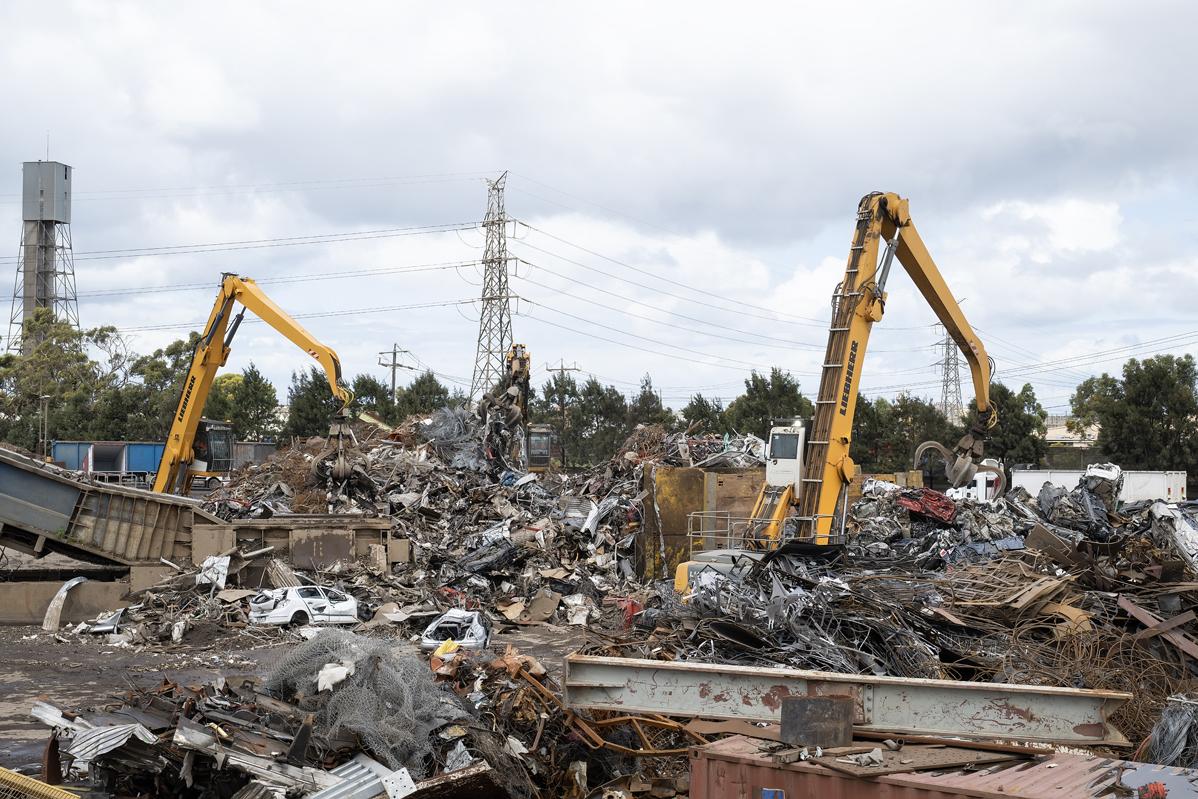
InfraBuild Recycling offers safe and effective environmental management of metal recycling by handling, collecting, processing and distributing (for sale) ferrous and non-ferrous scrap metals at the majority of our sites around Australia.
Ferrous metals play a crucial role in the steel manufacturing process as they serve as the primary component for producing steel. Our recycling facilities utilise shredding techniques to process ferrous products, breaking them down into smaller fragments. This process produces a small amount of recovered non-ferrous metals and non-metallic byproducts. Subsequently, the fragmented ferrous materials are transported to the nearest InfraBuild Steel manufacturing site, where they are fed into the Electric Arc Furnace (EAF) for steelmaking.
What is the difference between ferrous and non-ferrous metals?
In a nutshell, ferrous metals contain iron and non-ferrous metals do not.
One way to remember is that iron’s chemical symbol is Fe. Therefore:
Ferrous = Iron Non-Ferrous = No iron.
But iron is only one of a range of properties that make each one more suitable for certain applications than the other.
Ferrous metals
Ferrous metals are extremely strong and durable and are therefore the main type of metal used in the construction industry. They are used by our customers to build anything from bridges and buildings to railway tracks and the trains that run on them, as well as shipping containers, cars and domestic tools.
Most ferrous metals have a high carbon content which generally makes them vulnerable to rust when exposed to moisture.
They are also magnetic which sees them used in numerous motor and electrical applications.
Common ferrous metals are: Alloy steel, carbon ( or structural) steel, stainless steel, cast iron and wrought iron.
Non-Ferrous metals
Non-ferrous metals are highly malleable and have no iron content. This makes them resistant to rust and corrosion and therefore ideal for roofing and guttering, liquid pipes and outdoor signs. Not being magnetic also makes them sought after for many electronic applications.
Common non-ferrous metals include: aluminium, copper, lead, tin, zinc and precious metals such as gold and silver
Please contact us for any feedback or media enquiries about this content.
Subscribe to the
InfraBuild newsletter
Receive regular updates on news, case studies as well as the latest products and services.
